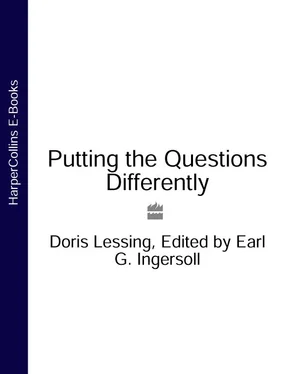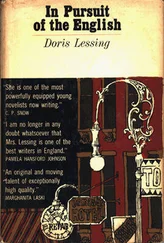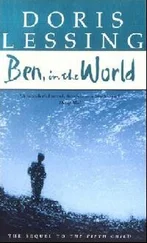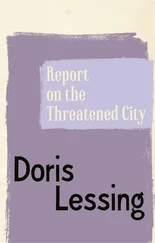Newquist:What do you feel about the fiction being turned out today? Does it share the same virtues and failings as theater or can it be considered separately?
Lessing:Quite separately. You want to know what contemporary writers I enjoy reading? The American writers I like, for different reasons, are Malamud and Norman Mailer – even when he’s right off center he lights rockets. And Algren. And that man who wrote Catch-22. And of course, Carson McCullers. But I only read the books that drift my way; I don’t know everything that comes out.
Newquist:How do you feel about critical reactions to your own works?
Lessing:I don’t get my reviews anymore. I read reviews if they turn up in the papers I get, but I go through them fast and try to pay little attention to what is said. I think the further I’m removed from this area – reviews, the literary squabble-shop – the better.// You see, the literary society in London is very small and incestuous. Everyone knows everyone. The writer who tosses a scrap of autobiography into an otherwise fictional piece (which writers always have done and always will do), he’s not credited with any imagination. Everyone says, “Oh, that character’s so and so,” and “I know that character.” It’s all too personal. The standards of criticism are very low. I don’t know about American critics, but in this country we have an abysmal standard. Very few writers I know have any respect for the criticism they get. Our attitude is, and has to be, Are the reviews selling books or not? In all other respects, the reviews are humiliating, they are on such a low level, and it’s all so spiteful and personal.
Newquist:Do reviews sell books in England?
Lessing:My publishers claim they help build a reputation and that indirectly they do sell books. This is probably true. But in Great Britain everything is much more cumulative and long-term than in America. One simply settles in for what you call the long haul. But “reputation” – what are reputations worth when they are made by reviewers who are novelists? Writers aren’t necessarily good critics. Yet the moment you’ve written a novel, you’re invited to write criticism, because the newspapers like to have one’s “name” on them. One is a “name” or one is not, you see. Oh, it’s very pleasant to be one, I’m not complaining, I enjoy it. But everyone knows that writers tend to be wrong about each other. Look at Thomas Mann and Brecht – they were both towering geniuses, in different ways, and they didn’t have any good word for each other.
Ideally we should have critics who are critics and not novelists who need to earn a bit to tide them over, or failed novelists. Is there such an animal, though? Of course, sometimes a fine writer is a good critic, like Lawrence. Look at something that happened last year – I wrote a long article for the New Statesman about the mess socialism is in. There was a half-line reference to X. To this day, people say to me, “that article you wrote attacking X.” This is how people’s minds work now. At the first night of one of Wesker’s plays, up comes a certain literary figure and says, his voice literally wet with anxiety, “Oh, Wesker is a much better playwright than Osborne. He is, isn’t he?” He felt that someone’s grave should be danced on. He was simply tired of voting for Osborne. Tweedledum and Tweedledee. In and out.
You’re going to say the literary world has always been like this. But what I said about the theater earlier applies – nothing wrong with the audience who likes Who’s for Tennis? and the critics who do. It’s all theirs. But they should keep out of the serious theater. Similarly, of course, the literary world is always going to seethe with people who say, I’m bored with voting for X. But writers should try to keep away from them. Another bit of advice to a young writer – but unfortunately economics make it almost impossible to follow: Don’t review, don’t go on television, try to keep out of all that. But, of course, if one’s broke, and one’s asked to review, one reviews. But better not, if possible. Better not go on television, unless there is something serious to be said (and how often is that?). Better to try to remain what we should be – an individual who communicates with other individuals, through the written word.
Newquist:To return to A Man and Two Women. Which stories in this collection would you choose as personal favorites?
Lessing:That’s very difficult. I like the first one, titled “One off the Short List” because it’s so extremely cold and detached – that one’s a toughy. I’m pleased that I was able to bring it off the way I did. Then there were a couple of zany stories I’m attached to. The story about incest I liked very much – the one about the brother and the sister who are in love with each other. Not autobiographical at all, actually; perhaps I wish it were. And I like “To Room 19,” the depressing piece about people who have everything, who are intelligent and educated, who have a home and two or three or four beautiful children, and have few worries, and yet ask themselves “What for?” This is all too typical of so many Europeans – and, I gather, so many Americans.
Newquist:Perhaps life without challenge or excitement amounts to boredom.
Lessing:Life certainly shouldn’t be without excitement. The Lord knows that everything going on at the moment is exciting.
Newquist:But hasn’t boredom become one of our most acute social problems?
Lessing:I don’t understand people being bored. I find life so enormously exciting all the time. I enjoy everything enormously if only because life is so short. What have I got – another forty years of this extraordinary life if I’m lucky? But most people live as if they have a weight put on them. Perhaps I’m lucky, because I’m doing what I want all the time, living the kind of life I want to live. I know a great many people, particularly those who are well-off and have everything they are supposed to want, who aren’t happy.
Newquist:Right now a great many criticisms are leveled against bored Americans who have a surfeit of what they want. Is this true of England?
Lessing:I think that England is much more of a class society than America. This street I live on is full of very poor people who are totally different from my literary friends. They, in turn, are different from the family I come from, which is ordinary middle class. It isn’t simple to describe life in England. For instance, in any given day I can move in five, six different strata or groups. None of them know how other people live, people different from themselves. All these groups and layers and classes have unwritten rules. There are rigid rules for every layer, but they are quite different from the rules in the other groups.
Newquist:Then perhaps you maintain more individuality.
Lessing:The pressures on us all to conform seem to get stronger. We’re supposed to buy things and live in ways we don’t necessarily want to live. I’ve seen both forms of oppression, the tyrannical and the subtle. Here in England I can do what I like, think what I like, go where I please. I’m a writer, and I have no boss, so I don’t have to conform. Other people have to, though. But in Southern Rhodesia – well, there one can’t do or say what one likes. In fact, I’m a prohibited immigrant in South Africa and Central Africa, although I lived in Rhodesia twenty-five years. But then, the list of people who are prohibited in these areas is so long now.
Читать дальше












